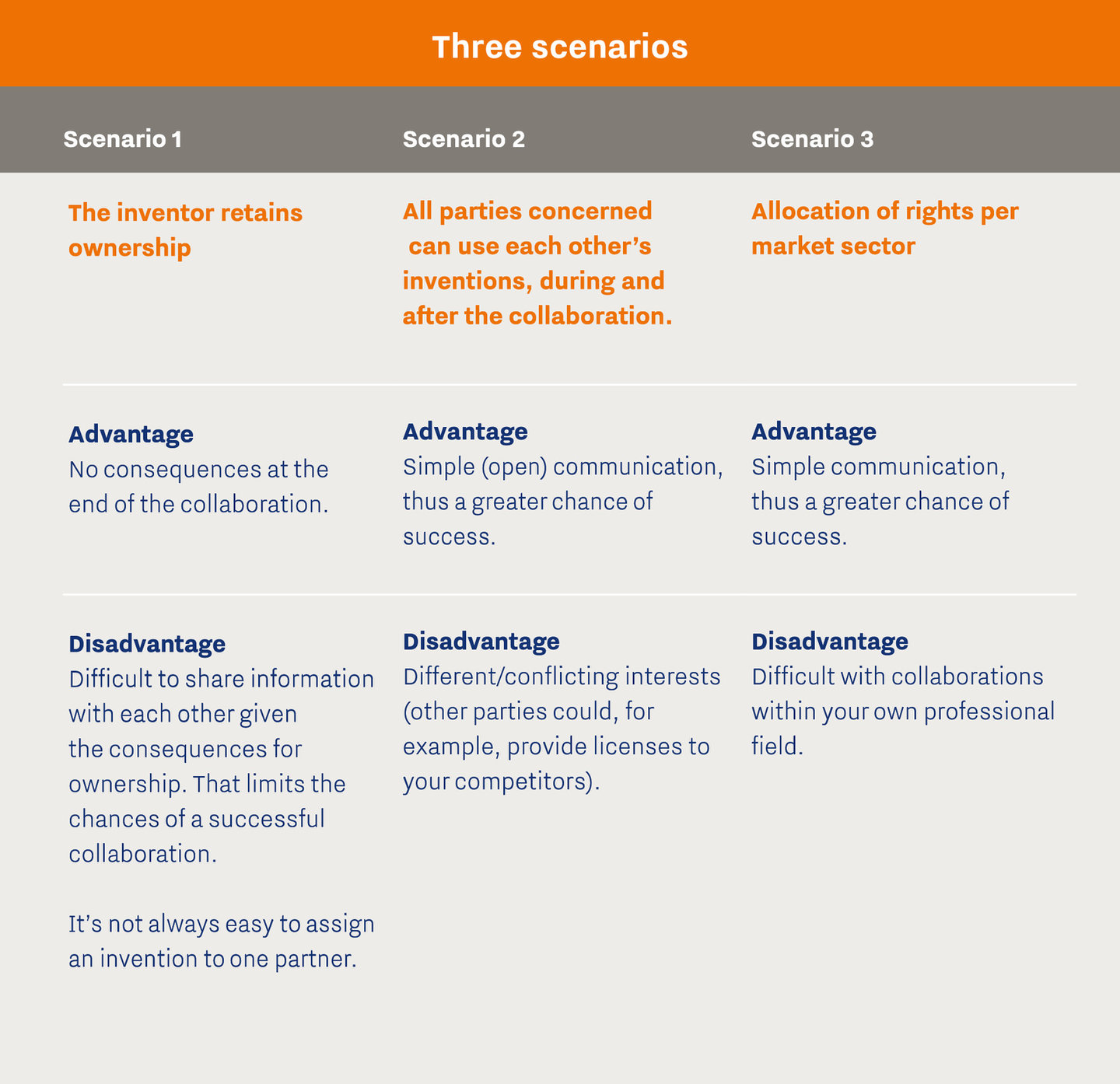Service
Collaboration also entails arranging property rights
“Do you want to collaborate?” If tech-driven businesses ask each other that question, both sides tend to dig their heels in because inevitably the follow-up question is almost always: Who will own the IP rights that come from that collaboration? Making agreements about this in advance avoids frustrations after the fact.
Where parties of course want to protect what they have already developed (background) and that which they are going to develop (foreground), Article 13 of the Dutch Patent Act states that an invention by various people or parties working together under an agreement is their joint property. The Act also states that as one of the owners, you are not permitted to provide a license without the other owner’s consent, but that your share can be transferred without the other party agreeing.
Mutual interests
The law and the often intuitive reaction from parties (it is, will stay and become mine) often appear to be at odds with one each other. To avoid reciprocal uncertainties, it is advisable at the start of a collaboration to make agreements about the property rights and establish them in writing. That can be difficult: negotiating about potential results before a project has even gotten off the ground. Yet, you should realize that it is in both parties’ interests to arrange these matters in advance. Much like a written confidentiality agreement (also called a non-disclosure agreement or NDA) it is essential for both parties.
Arranging property rights in advance is in the interest of all parties.
Three scenarios
What can help with the often difficult negotiations is to clearly determine the interests of the parties involved. Additionally, the three allocation scenarios below (see figure) can be scrutinized. Each scenario - the inventor remains the owner, all parties concerned can use the invention and the allocation of rights per market sector - has its advantages and disadvantages. There are of course also various intermediate and mixed forms. By identifying your interests and discussing these scenarios together, you will have already laid the foundations for establishing agreements on property rights and you can secure your rights in that way.

Want to know more about intellectual property in a collaboration?
Then sign up for our webinar “Collaborations, NDAs and confidentiality” on 17 December. Or contact Annelies de Bosch Kemper.
Annelies de Bosch Kemper
Attorney-at-Law
Senior Associate
Henri van Kalkeren
European and Dutch Patent Attorney
Associate
+31 20 530 79 92
Share